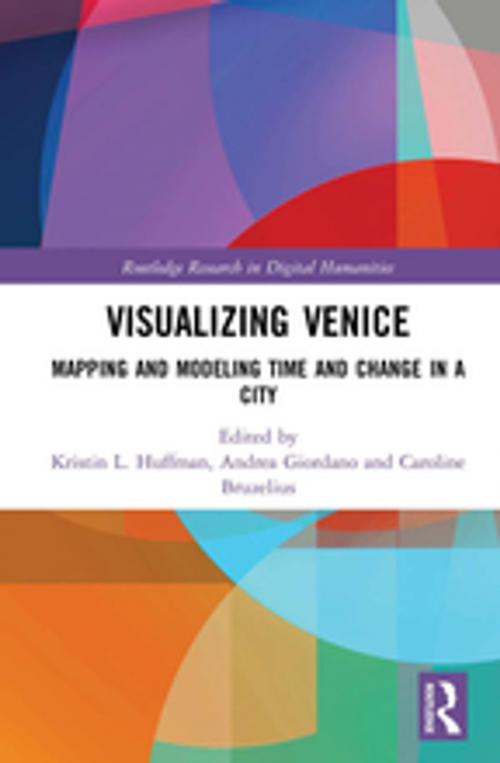Visualizing Venice
Mapping and Modeling Time and Change in a City
Nonfiction, History, Italy, Renaissance| Author: | ISBN: | 9781351586832 | |
| Publisher: | Taylor and Francis | Publication: | October 4, 2017 |
| Imprint: | Routledge | Language: | English |
| Author: | |
| ISBN: | 9781351586832 |
| Publisher: | Taylor and Francis |
| Publication: | October 4, 2017 |
| Imprint: | Routledge |
| Language: | English |
Visualizing Venice presents the ways in which the use of innovative technology can provide new and fascinating stories about places and times within history. Written by those behind the Visualizing Venice project, this book explores the variety of disciplines and analytical methods generated by technologies such as 3D images and interoperable models, GIS mapping and historical cartography, databases, video animations, and applications for mobile devices and the web.
The volume is one of the first collections of essays to integrate the theory and practice of visualization technologies with art, architectural, and urban history. The chapters demonstrate how new methodologies generated by technology can change and inform the way historians think and work, and the potential that such methods have to revolutionize research, teaching, and public-facing communication.
With over 30 images to support and illustrate the project’s work, Visualizing Venice is ideal for academics, and postgraduates of digital history, digital humanities, and early modern Italy.
Visualizing Venice presents the ways in which the use of innovative technology can provide new and fascinating stories about places and times within history. Written by those behind the Visualizing Venice project, this book explores the variety of disciplines and analytical methods generated by technologies such as 3D images and interoperable models, GIS mapping and historical cartography, databases, video animations, and applications for mobile devices and the web.
The volume is one of the first collections of essays to integrate the theory and practice of visualization technologies with art, architectural, and urban history. The chapters demonstrate how new methodologies generated by technology can change and inform the way historians think and work, and the potential that such methods have to revolutionize research, teaching, and public-facing communication.
With over 30 images to support and illustrate the project’s work, Visualizing Venice is ideal for academics, and postgraduates of digital history, digital humanities, and early modern Italy.















